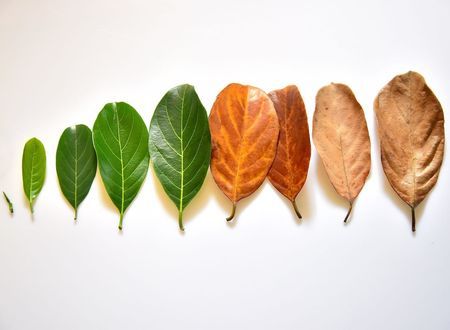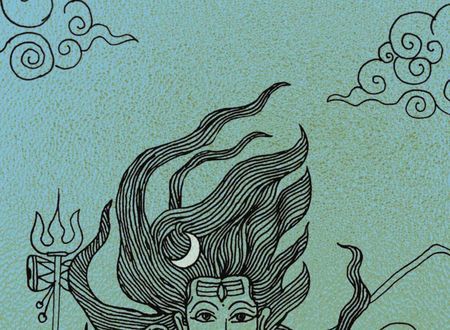Ever wonder why certain diet programs work wonders for some and not for others? Why do only some people get seasonal allergies? Why do certain people get tipsy after just one drink while some can guzzle down bottles of liquor and still stay sober? And, why do some get tired after just half an hour of physical work whereas some seem to be endowed with an inexhaustible store of energy?
Answers to these questions and many more lie in Ayurveda where our body is not just looked upon a holder of flesh and bones but the finest vehicle of experiencing all pleasures and sorrows. In Ayurveda, as in yoga and tantra, the health of an individual is not just the state of his physical body but an aggregate of the body, senses, mind and soul. Our body is a sacred space, it is the seat of our consciousness and it does us much good if we pay attention to its needs and tendencies.
Each one of us is born with a certain constitution. It determines how we accept, process and absorb the food we eat. It influences how we respond to the environment around us. The term used in Ayurveda to depict an individual’s constitution is prakriti. It means our genetic disposition, our inherent nature. It is most interesting because the Sanskrit term for Nature is also prakriti.
We are a part of Nature. Our nature (disposition, proclivities, habits …) is an extract of Nature. This is not a metaphorical statement but a scientific truth. For, the foods we eat, the water we drink, the air we breathe, all these were outside us once, they were in the Nature. Once we consume them, they are in us. They become us. We are made from them. It is important to understand our own prakriti, constitution, so we may know what will suit us from prakriti, the Nature.
The Sanskrit word for health is svasthya; it means self-dependence or a sound state of the body and mind. If examined further, it means your natural state; sva means natural and sthya means state or place. Ayurveda aims to restore your natural state of health so you may be free of mental and physical afflictions.
More often than not, and certainly in adults, most physical disorders are the result of a repressed and bruised consciousness. Mental afflictions create diseases in the physical body and physical diseases, in turn, disturb the state of mind. You can treat the disease in the physical body but that’s merely treating the symptom. It is not the permanent solution.
The modern system of medicine is mostly symptom driven. If I have a headache, it’ll tell me to take a pain-killer. Ayurveda does not believe in treating the symptoms. It advocates understanding the patient and treating the cause of the symptom and not the symptom itself. In order to do that, the ancient scriptures took a far more holistic approach to health by combining our lifestyle with our natural tendencies (which vary from one person to another). No medicine works on every individual the same way. In other words: one man’s medicine could be another man’s poison.
Just focusing on the physical health by way of better diet and exercise is only a fraction of the solution; your mental and emotional welfare is just as critical. How you respond to what life hurls at you impacts your health in the most significant manner. The way you look at anything and the manner in which you accept or react are the two most important factors that determine your overall wellbeing. If you can change your perspective towards what you find disturbing, ninety percent of the job is done. The remaining ten percent is simply about body fitness. Yogic wisdom helps you gain mental equilibrium and Ayurveda, physical wellbeing.
Above is the gist of The Wellness Sense: my work on Health and Wellness. Reviewed by eight physicians for its authenticity and accuracy, I’ve condensed the wisdom found in yogic and Ayurvedic texts combined with the insights offered by modern medical science in this full-length book.
Before you email me asking when you can get a physical copy, let me answer it right away: Presently, I don’t have the necessary resources to get this printed as a physical book so, it’s available worldwide only as an e-book. You can read a sample or buy the e-book on Amazon by going here or on iBooks here. In a few days’ time, the e-book will be available on Kobo too.
Expounding on the esoteric aspects of the ancient wisdom in simple terms, this book shows you how to take care of yourself better and how to lead a healthier life in our present world — a world where we have all the comforts yet we are restless. We have an organic breakfast on the table but no time to eat it, we’ve got the comfiest mattress but little sleep. The key to wholesome living and your wellbeing is entirely in your hands. You just need the right perspective and discipline. If you are inquisitive about Ayurveda and passionate about nutrition and health, you may want to give this book a try (here).
Peace.
Swami
A GOOD STORY
There were four members in a household. Everybody, Somebody, Anybody and Nobody. A bill was overdue. Everybody thought Somebody would do it. Anybody could have done it but Nobody did it.
Don't leave empty-handed, consider contributing.It's a good thing to do today.









Comments & Discussion
10 COMMENTS
Please login to read members' comments and participate in the discussion.